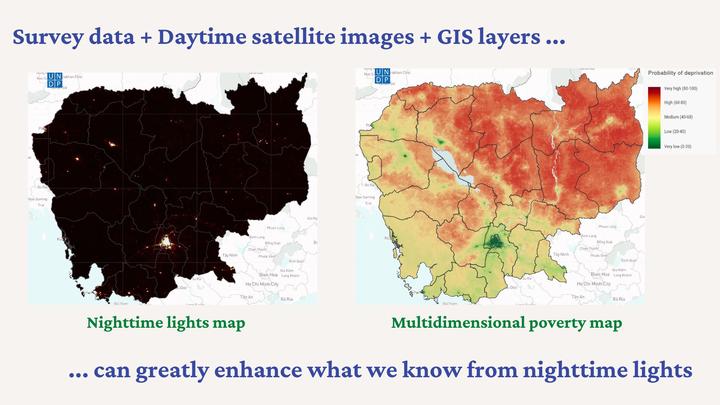Mapping multidimensional poverty in Cambodia: Integrating big data, socioeconomic surveys, and machine learning

Abstract
Cambodia, while experiencing rapid economic growth, faces persistent poverty challenges, making it one of Southeast Asia’s economically vulnerable nations. Addressing this requires comprehensive insights into poverty’s diverse dimensions. This study combines big data, machine learning, and the Cambodia Socio-Economic Survey to analyze poverty across education, health, and living standards. It calculates deprivation probabilities across a geospatial grid. A random forest algorithm yields high predictive accuracy and identifies key predictors of poverty vulnerability. Overall, this study underscores the potential of big-earth observation data and machine learning in complementing surveys to map poverty vulnerabilities at various scales.
Date
Dec 15, 2023 4:00 PM
Location
Nagoya, Japan